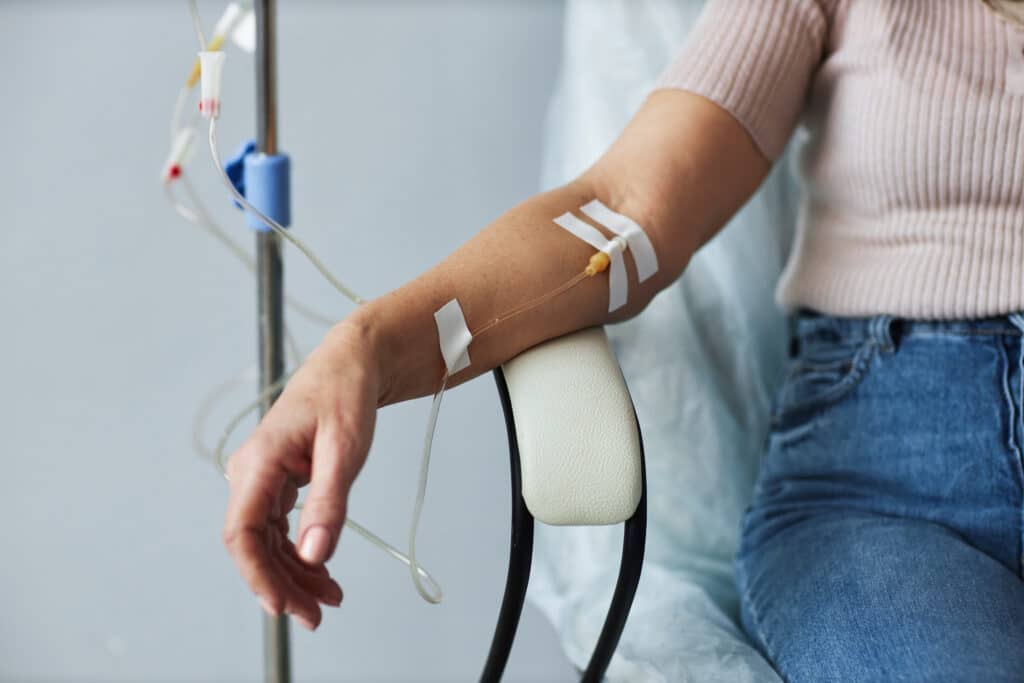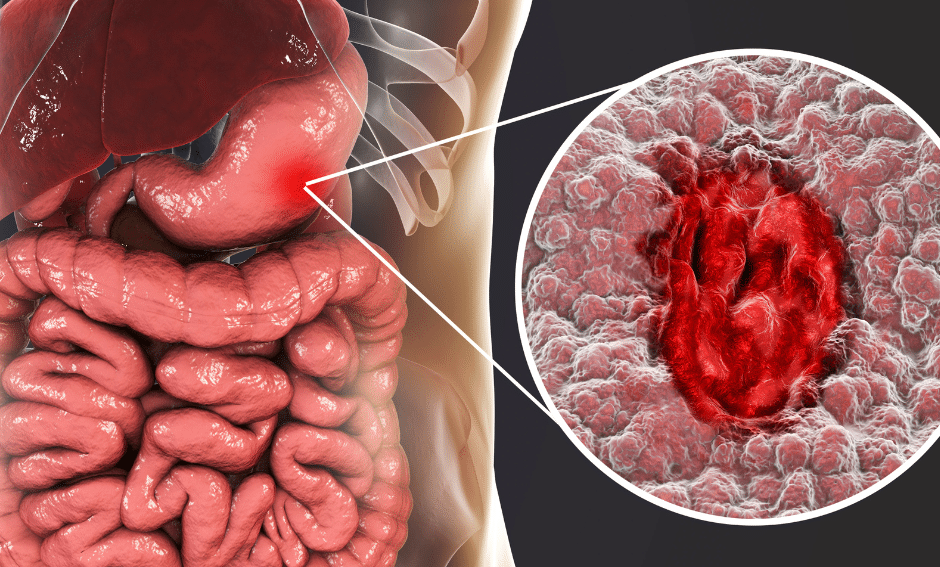Gobble Up GERD Awareness Week: 5 Tips for Thanksgiving Eating
 Established in 1999 by the International Foundation for Functional Gastrointestinal Disorders (IFFGD), GERD Awareness Week is officially part of the U.S. National Health Observances (NHO) calendar, falling on the week of Thanksgiving.
Established in 1999 by the International Foundation for Functional Gastrointestinal Disorders (IFFGD), GERD Awareness Week is officially part of the U.S. National Health Observances (NHO) calendar, falling on the week of Thanksgiving.
The week is dedicated to raising awareness about this often painful condition, typically providing tips, insight, and the latest research in treatments and care.
What Is GERD?
Gastroesophageal reflex disease (GERD) is a chronic disorder that occurs when the acids in the stomach back up into the esophagus and irritate the lining. Affecting approximately 20 percent of Americans, GERD presents with uncomfortable symptoms, including:
- Bad breath
- Coughing or wheezing
- Difficulty or pain with swallowing
- Discomfort or pain that affects everyday activity
- Heartburn that occurs at night
- Heartburn that occurs more than twice a week and gets progressively worse
- Hiccups
- Hoarseness
- Nausea or upset stomach after eating (indigestion)
- Sore throat
- The sensation of food feeling stuck in the esophagus (dysphagia)
Given that this important awareness week falls on one of the heaviest eating holidays—and basically signals the start of the holiday season—here are some helpful tips for managing GERD through the meal and beyond.
1) Opt for smaller portions
It’s important for those living with GERD to not only watch what they eat but how much they eat, as well. To avoid stuffing yourself silly, eat a small breakfast and lunch on Thanksgiving Day. Then, serve yourself smaller portions—or use a smaller plate—at dinner.
2) Avoid known food triggers
Though GERD triggers may vary from person to person, it’s generally a good idea to keep away from the well-known offenders, such as
- Caffeine
- Coffee
- Fried, fatty foods
- Garlic
- Onions
- Tomatoes
For example, keep stuffing off of your plate due to fatty sausage, onions and garlic. String bean casserole should be avoided for its fried onions. Gravy may also be irritating as it is commonly made with fat drippings from the turkey.
3) Limit alcohol consumption
In some individuals, alcohol can relax the lower esophageal sphincter, allowing the stomach acid to back up into the esophagus. Stick to non-carbonated, non-alcoholic beverages, such as water or non-citrus fruit juice (e.g., cranberry, grape) to avoid bloating and keep the stomach acid down.
4) Don’t give into napping temptation
After a lavish Thanksgiving meal, you may be tempted to kick off your shoes and lay down on the couch for a power nap. However, laying horizontally—especially so soon after eating—can promote reflux. Allow three to four hours after your meal before considering a nap or bedtime.
5) Walk it off
Take a walk before and after your meal. Doing so helps to improve digestion and get your bowels moving.
Thanksgiving eating with GERD can gobble up your fun if you’re not careful. Taking the right steps—including regular visits with a gastroenterologist—can ensure you have a happy and healthy holiday.
For more information on GERD or to schedule an appointment with one of our specialists, contact Digestive Healthcare Center today.
Make an Appointment for Comprehensive Digestive Care in NJ
At Digestive Healthcare Center, we want each patient at our three offices in New Jersey to feel confident about their digestive health. We encourage you to contact us today to make an appointment with one of our expert gastroenterologists – don’t wait to start putting your digestive health first!
Recent Blogs
Learn more about all things digestive health and wellness by checking out our recent gastroenterology blogs.

Infusion therapy has become a vital treatment option for individuals with Crohn’s disease, offering relief when traditional medications may fall short. This method delivers medication directly into the bloodstream, providing quicker and more targeted effects to help manage inflammation, reduce symptoms, and improve quality of life. For those with moderate to severe Crohn’s disease, infusion […]

The Advancement of Ulcerative Colitis Treatment Ulcerative colitis (UC) is a chronic inflammatory bowel disease (IBD) that affects the lining of the colon and rectum. Those diagnosed with UC often experience flare-ups that can significantly impact their quality of life. Fortunately, advancements in medical treatment have made managing this condition more achievable. One option is […]

Diverticular disease and diverticulitis are related digestive health conditions that affect the large intestine (colon). With diverticular disease, small, bulging pockets develop on the lining of the colon. When these pockets become inflamed or infected, the condition is called diverticulitis. They are very common – especially after age 40 – and rarely cause problems. At […]
























